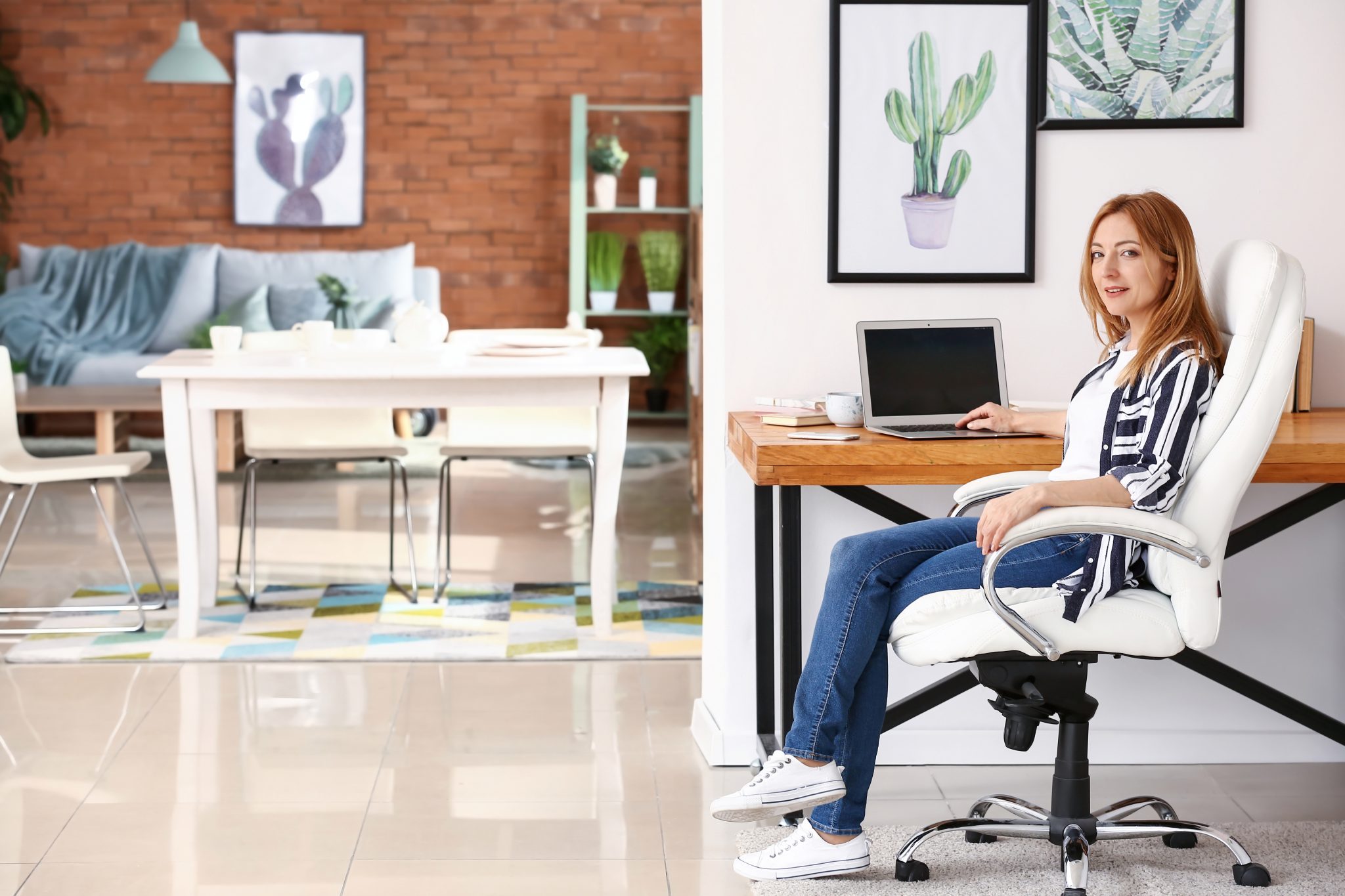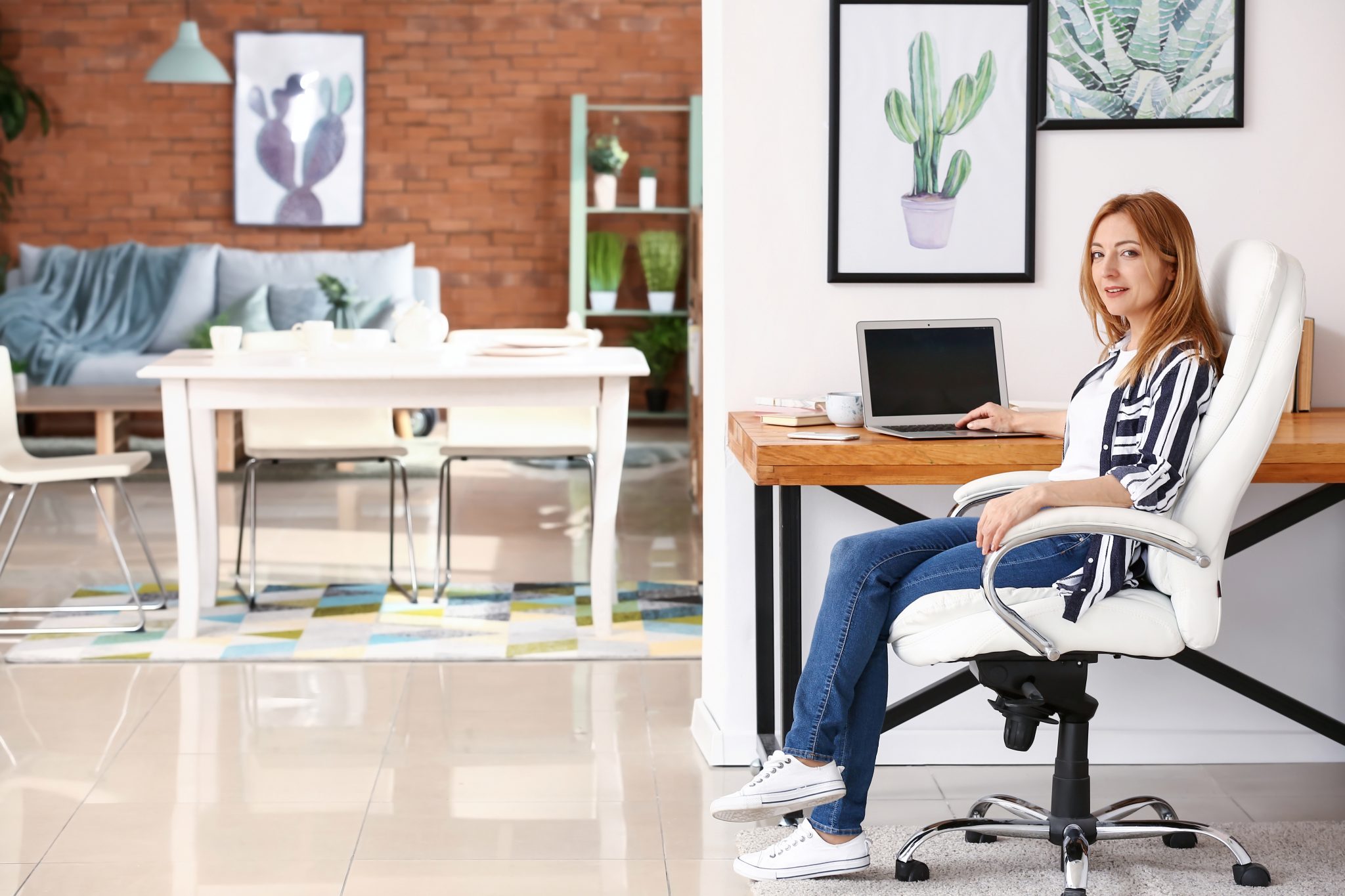Eight Tips to Create a Functional Home Office Space
Writer / Lindsey Thompson
Photography Provided
It’s a castle, a sanctuary and a place to rest. It’s where meals are shared and memories are made. Home is a place to sleep, eat and play, but for many, home is also a place to work. According to a survey done by Global Workplace Analytics, the number of people working from home has grown 91% in the last 10 years.

As work-from-home jobs become more common, many people are looking for ways to turn their homes into functional working spaces. Fortunately, it doesn’t take a lot of money or a lot of space to create an effective home office.
Check your company’s policies before you set up your home office, check to see what costs your company will cover. Depending on the company, you could get everything from the furniture to the internet covered. Keep receipts for anything that you purchase yourself. The federal government allows taxpayers to take deductions for home offices, whether you’re a homeowner or a renter.
Start With The Basics
When putting together a home office, you’ll want to start with a desk or a table. This is where you’ll spend the majority of your day, so you’ll want to make sure it’s comfortable. Invest in an ergonomic chair that offers proper lumbar support, or use pillows to create your own lumbar support. Take plenty of breaks during the day to stand up, walk around and stretch your muscles.
Employees who see clients or colleagues at home should provide comfortable seating for those visitors. Check out Facebook, Craigslist and other web sites for inexpensive options for desks, chairs and office decor.
For an even healthier option, purchase a standing desk and avoid sitting altogether. Studies have found that sitting too long during the day can increase your risk of dementia, diabetes and anxiety, among other issues. If a standing desk isn’t in your budget, you can make your own using books, or build a simple one with inexpensive plywood.
Organize Your Space
Be sure your desk has enough room for your computer, as well as your mouse and keyboard if you use those. You’ll also want a spot for pens, pencils, notepads and whatever other office supplies you use on a regular basis. Store these in a desk drawer to keep everything organized. You can also use decorative baskets or boxes to keep things handy and tidy if you don’t have drawers. For a personalized touch, explore Bespoke Glazed Partitioning Solutions to enhance both functionality and aesthetics.
To tame all those computer cables, phone chargers and other cords, purchase fabric cord covers or cord storage boxes to keep everything hidden but accessible. Bookshelves provide plenty of additional storage, or use floating shelves if you’re tight on space. Bulletin boards and dry-erase boards don’t take up a lot of space, and give you a spot for notes and important documents.






